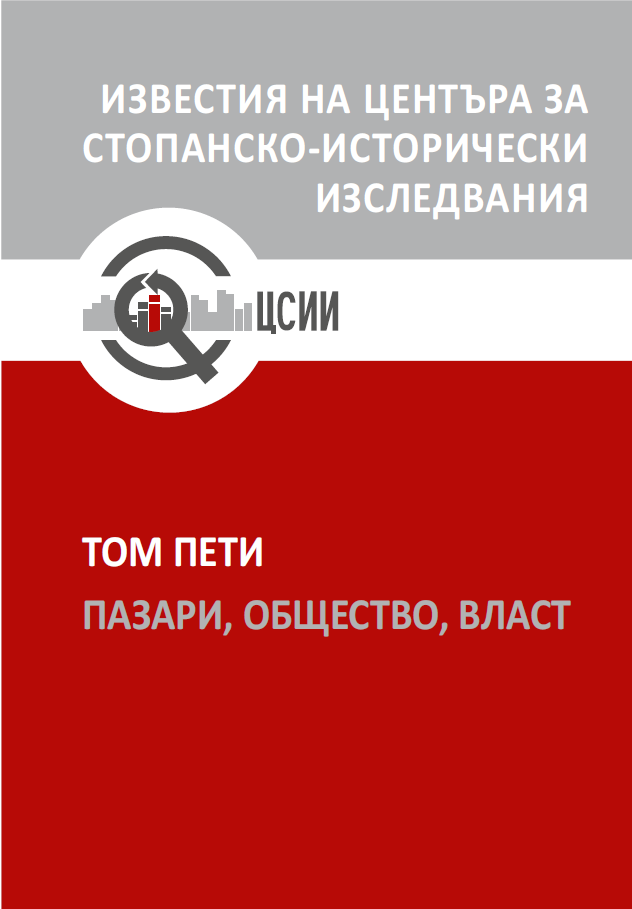Политиката на Светия синод за организирането на манастирските земи в стопанства в периода 1913–1923 г.
The Policy of the Holy Synod on the Organization of Monastic Lands into Farms in the Period 1913–1923
Author(s): Nikolay AtanasovSubject(s): History, Economy, Cultural history, National Economy, Agriculture, Comparative history, Economic history, Ethnohistory, History of ideas, Local History / Microhistory, Political history, Social history, Recent History (1900 till today), Socio-Economic Research
Published by: Център за стопанско-исторически изследвания
Keywords: Church-Economic Department; monastery farms; monastery economics; agriculture
Summary/Abstract: The study traces the formation and development of the Church-Economic Department at the Holy Synod of the Bulgarian Orthodox Church. The newly created structure aims to organize the monastery lands into efficient farms. With this purpose, a department was created, which monitors the work of monastery forests and one, which takes care of the fruits and vineyard distribution. In order to provide material support of the newly created structure, a Church-Monastery Fund was also created, which is filled up by surpluses of the church and monastery funds. Some distinct experts were involved in the Church-Monastery Department, who help in formation of its structures and in reaching high yields and quality of the cultivating seedlings and crops. The successful development of the Church-Economic Department is hindered by the state policy. Alexander Stamboliyski’s regime brings in action the Law on Labor Land Ownership, which requires confiscation of uncultivated lands and its distribution to the needy population. The article of the law also applies to monastic lands. This policy has two irreversible consequences. One is connected to the gradual withdrawal of leading and specialized personnel out of the Church-Economic Department, and second is related to increasing the negative reaction of part of Synod elders and some abbots. The Church’s internal disagreements regarding the economic policy are caused by the centralization process and regulation of the economic activity and the exhaustion of the monastery funds, from which about 1/3are being allocated for the benefit of different church funds.
Journal: Известия на Центъра за стопанско-исторически изследвания
- Issue Year: V/2020
- Issue No: 1
- Page Range: 216-227
- Page Count: 12
- Language: Bulgarian

